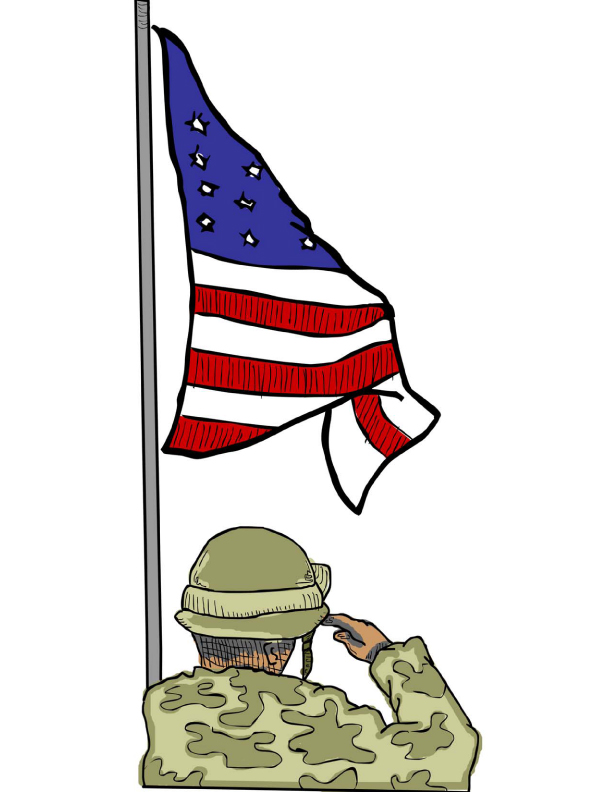Obama should provide required troops for war in Afghanistan

By Alexander Pherson
Oct. 7, 2009 9:00 p.m.
Fearful of looking weak-kneed for his strident opposition to the war in Iraq, President Barack Obama went to great lengths during the election to prove that he had the intestinal fortitude worthy of a commander in chief. When push came to shove, he pinned his national security bona fides on his support for the war in Afghanistan, which he recognized as a “war of necessity.”
Today, Afghanistan remains as vital as ever, but Obama does not treat it with the same urgency as he did in his campaign days when he was trying to move toward the center. Thus, weeks after Gen. Stanley McChrystal, the commander of U.S. and NATO forces in Afghanistan, delivered an assessment of the war laying out the case for more troops, the president has still yet to render a decision.
If Obama’s hesitation is a sign of growing doubts, he is in the mainstream. Public support for Afghanistan is flagging, addled by a combination of the seeming endlessness of the war and the disbelief that the country can transform into a Western-style democracy given its lack of democratic roots
To be sure, no argument for the war is helped by the fact that it has lasted so long ““ eight years to be exact. Syndicated columnist George Will points out that it “already is nearly 50 percent longer than the combined U.S. involvements in two world wars.” After this length of time and thousands of attempts to explain ourselves, it’s natural that many people have lost sight of our specific goals. People cannot be expected to back a war when its goals elude them.
Political developments also contribute to a sense of defeatism. Evidence of possible fraud in the recent elections in Afghanistan has led to doubts about whether the country will ever reverse the sequence of iniquitous governments that have held it hostage for decades.
Similarly, court rulings, such as one affirming a man’s right to rape his wife and one obliging women to request permission to leave their homes, make the cultural divide between our countries seem insuperable. The war’s detractors posit that these setbacks attest to a lack of progress, an argument that has turned many one-time believers into disbelievers.
While politicians have failed to reanimate public support for the war, however, the reasons for staying in Afghanistan ““ and for committing more troops ““ survive.
The first thing to consider, as Obama must now do, is what will happen if we decide to pull out. In the Wall Street Journal, Senators John McCain, Lindsey Graham and Joe Lieberman noted the destabilizing influence that withdrawal could have on Pakistan: “The ramifications of an American defeat in Afghanistan would not only be a devastating setback for our nation, in what is now the central front in the global war on terror, but would inevitably further destabilize neighboring nuclear Pakistan.”
If the Taliban reasserted itself, it could effectively use Afghanistan as a launching pad for attacks across the border, possibly leading to another full-scale regional war ““ not to mention a renewed civil conflict between its own ethnic minorities.
Then there are the implications for al-Qaida. Afghanistan’s past refusals to turn al-Qaida over to the United States leaves little doubt that it would welcome it back with open arms. Were the group to establish safe cells and regenerate itself, it would be well-positioned to infiltrate Pakistan’s nuclear arsenal. Indeed, a regime change in either country could realistically result in al-Qaida’s acquiring nuclear weapons.
Those who argue that we can avoid these setbacks by waging an offshore war ““ with unmanned drones, air strikes and the like ““ are blissfully ignorant. As McChrystal implied by requesting more troops on the ground, the counterinsurgency will only work if military personnel are able to work alongside local communities ““ to perform such actions as build roads, collect on-the-ground intelligence, provide security, reign in street violence and do all the things required to rebuild Afghanistan’s civil society and make it self-sufficient. That cannot be done with the limited manpower we now have.
There is, of course, no guarantee that enlisting more troops will achieve what we hope it will. As the phrase “graveyard of empires” implies, building in Afghanistan is an inherently risky endeavor, and it proved to be for the Soviet Union in the 1980s. But abandoning the country altogether or leaving it without the requisite forces for keeping the Taliban at bay would leave us no chance at all for success.
Keeping in mind that any hesitation on our part will be viewed as a sign of weakness by our enemies, Obama should renew treating Afghanistan like the “war of necessity” he has in the past, committing more troops before it turns into the hardscrabble campaign Iraq was before the surge. If he continues to mothball or chooses the path of least resistance by adding a token number of troops, Afghanistan may very well fall through the cracks, and with it, the larger Middle East will fall further into disarray.
E-mail Pherson at [email protected]. Send general comments to [email protected].


